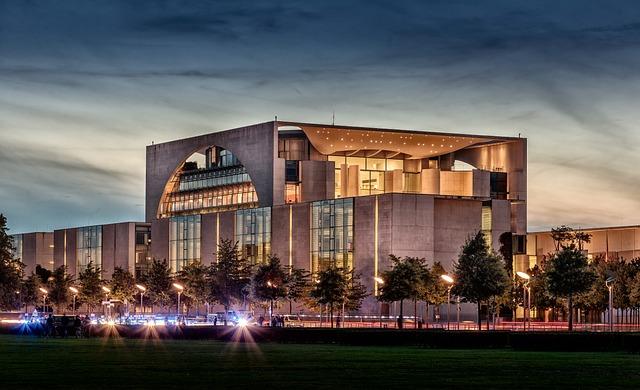Navigating Public Policy Challenges in Pakistan: A New Era
As the world evolves at an unprecedented pace, the landscape of governance and policy-making finds itself in a constant state of flux. In Pakistan, a nation rich in cultural heritage and complex socio-political dynamics, this evolution presents both formidable challenges and unprecedented opportunities. The recent shifts in leadership, coupled with burgeoning economic pressures and societal aspirations, signal the dawn of a new era in public policy. Navigating these intricate terrains demands not only a deep understanding of historical context but also an innovative approach to tackle contemporary issues. From climate change to economic inequality, the stakes are high, and the pathways forward are multifaceted. This article delves into the pressing public policy challenges facing Pakistan today, exploring the strategies and frameworks that could pave the way for a more resilient and equitable future. Join us as we embark on this critical examination of how Pakistan can navigate the complexities of a rapidly changing world, embracing both the lessons of the past and the potential of tomorrow.
Redefining Governance Structures for Enhanced Accountability
In order to foster a culture of transparency and responsibility, it is crucial to rethink how governance operates at all levels of public administration. The introduction of multi-stakeholder models can significantly enhance the participatory process, enabling various segments of society to engage actively in decision-making. This shift is vital for:
- Strengthening Public Trust: Engaging citizens in governance cultivates confidence in governmental institutions.
- Mitigating Corruption: Diverse oversight mechanisms discourage malpractice by making it harder to operate without scrutiny.
- Encouraging Innovation: Input from varied stakeholders can lead to creative solutions tailored to the unique challenges in Pakistan.
Moreover, establishing a robust framework for monitoring and evaluation is essential for maintaining accountability. By utilizing technology, such as blockchain and data analytics, public agencies can track their performance and share relevant information with the public transparently. This approach not only holds institutions accountable but also promotes an environment where continuous improvement is encouraged. Organizations should focus on:
- Implementing Data-Driven Decision Making: Use of analytics to inform policy-making enhances responsiveness to community needs.
- Regular Reporting Mechanisms: Ensuring periodic updates on project and policy outcomes fosters transparency.
- Community Feedback Loops: Encouraging citizen feedback helps fine-tune initiatives and ensures alignment with public expectations.

Empowering Civil Society: A Catalyst for Policy Reform
In Pakistan, the landscape of public policy is undergoing a significant transformation, largely fueled by the dynamic contributions of civil society organizations. These entities serve as crucial intermediaries, connecting citizens with decision-makers, and advocating for reforms that are not only responsive but also progressive. By fostering dialogue and collaboration among various stakeholders, civil society can help bridge the gap between the government and the public, ensuring that the voices of marginalized groups are heard. Engaging communities in the policy-making process empowers them to articulate their needs, thus enhancing the relevance and effectiveness of reforms.
Moreover, effective advocacy by civil society often takes the form of strategic campaigns and partnerships aimed at influencing legislation and improving governance. Initiatives that focus on transparency, accountability, and participation can lead to significant advancements in key sectors such as education, health, and women’s rights. The ability to mobilize public sentiment around pressing issues creates momentum for change, pushing policymakers to prioritize innovative solutions. The following table illustrates the impactful areas where civil society interventions have succeeded in mobilizing public support and influencing policy outcomes:
| Area of Intervention | Key Achievements |
|---|---|
| Education Reform | Increased enrollment rates, enhanced curriculum |
| Health Initiatives | Improved maternal care, vaccination drives |
| Women’s Rights | Legal reforms, awareness campaigns |

Bridging the Gap: Fostering Collaboration Between Government and Citizens
In the quest to address public policy challenges in Pakistan, building a strong connection between governmental bodies and citizens is paramount. This relationship must be cultivated through open channels of communication and inclusive forums that encourage citizen participation in policy-making processes. By integrating feedback loops, governments can ensure that the concerns and suggestions of the populace are heard and incorporated into policy design. This collaboration can take many forms, such as:
- Town hall meetings to discuss key issues and gather input
- Online platforms for surveys and feedback
- Collaborative workshops focusing on specific policy challenges
Furthermore, leveraging technology can facilitate this partnership. Social media tools and applications can serve as effective mediums for engaging with citizens in real-time. Establishing a framework for citizen advisory councils will empower local communities to actively participate in policymaking, enhancing transparency and accountability. Here’s a simple table illustrating different methods of collaboration and their potential benefits:
| Collaboration Method | Potential Benefits |
|---|---|
| Public Consultations | Informed decision-making through diverse perspectives |
| Digital Platforms | Real-time engagement and data collection |
| Community Workshops | Empowerment and skill-building among citizens |

Leveraging Technology: Innovations for Transparent Policymaking
In an age where information is just a click away, leveraging technology has become essential for fostering transparent policymaking in Pakistan. Innovative tools such as data analytics, big data, and artificial intelligence are reshaping the landscape by providing actionable insights and enhancing government accountability. By utilizing platforms like open data portals and crowdsourcing applications, policymakers can engage with citizens more effectively, ensuring that diverse perspectives are considered in decision-making processes. This transition not only builds trust between the government and the public but also empowers citizens to take an active role in their governance.
The integration of technology also aids in the visualization of complex data, making it easier for stakeholders to comprehend and assess policies. For example, interactive dashboards can convey critical metrics at a glance, fostering informed discussions among policymakers and constituents alike. By adopting these cutting-edge solutions, the government can enhance real-time monitoring and evaluation of public services, ultimately leading to improved outcomes. Below is a brief overview of some key technologies that can promote transparency in policymaking:
| Technology | Benefits |
|---|---|
| Open Data | Increases accessibility and accountability |
| Blockchain | Ensures data integrity and security |
| Social Media Analytics | Engages citizens and gathers diverse opinions |
| GIS Technology | Visualizes spatial data for better urban planning |
To Wrap It Up
As Pakistan stands on the precipice of transformation, the challenges of public policy are both formidable and ripe with potential. The journey ahead is less a straight path and more a complex tapestry woven from the threads of tradition, innovation, and collective ambition. In this new era, the stakes are high, yet so are the opportunities for cooperation, engagement, and reform.
While navigating the intricate landscape of governance, stakeholders from all walks of life must come together— policymakers, civil society, and citizens—to foster an environment that prioritizes inclusivity and resilience. In doing so, Pakistan can harness its rich diversity as a driving force for sustainable development and social equity.
Ultimately, the quest to tackle public policy challenges is not merely about addressing immediate issues; it is about crafting a vision for a future where every voice matters and every citizen has a stake in the nation’s progress. As we close this chapter, let us remain hopeful that through collaboration, transparency, and innovation, Pakistan can indeed chart a course toward a brighter, more equitable future. The path may be fraught with challenges, but together, we can illuminate it with the promise of a new dawn.



